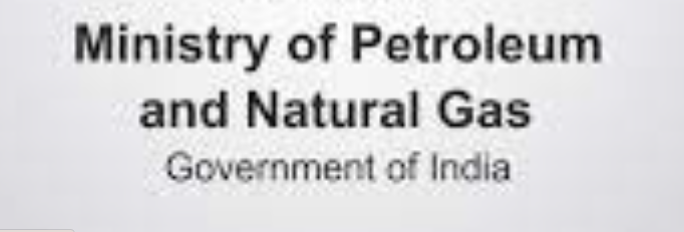Ministry of Petroleum & Natural Gas
The Ministry of Petroleum & Natural Gas is a ministry of the Government of India responsible for the exploration, production, refining, distribution, marketing, and conservation of petroleum, natural gas, and petroleum products. The ministry is headed by a cabinet minister, who is assisted by a minister of state and a secretary.
History
The Ministry of Petroleum & Natural Gas was created in 1963 by bifurcating the Ministry of Scientific Research & Cultural Affairs. Initially, it was named the Ministry of Petroleum & Chemicals, but in 1985, the department of chemicals was separated, and the ministry was renamed the Ministry of Petroleum & Natural Gas.
Objectives and Functions
The primary objectives and functions of the ministry include:
- Exploration and exploitation of petroleum resources, including crude oil and natural gas
- Production, supply, distribution, and pricing of petroleum products
- Refining and marketing of petroleum products
- Conservation of petroleum products and the environment
- Formulation and implementation of policies related to the oil and gas sector
- Monitoring the performance of public sector undertakings (PSUs) in the oil and gas sector
- Attracting foreign and domestic investments in the oil and gas sector
- Ensuring the country’s energy security and self-sufficiency
Public Sector Undertakings (PSUs)
The Ministry of Petroleum & Natural Gas has several PSUs under its administrative control, including:
- Oil and Natural Gas Corporation (ONGC): India’s largest oil and gas exploration and production company
- Indian Oil Corporation (IOC): India’s largest commercial enterprise, engaged in refining, marketing, and distribution of petroleum products
- Bharat Petroleum Corporation Limited (BPCL): A leading integrated oil company engaged in refining and marketing of petroleum products
- Hindustan Petroleum Corporation Limited (HPCL): A major player in the refining and marketing of petroleum products
- GAIL (India) Limited: India’s leading natural gas company involved in transmission, distribution, and marketing of natural gas and its byproducts
- Oil India Limited (OIL): A national oil company engaged in the exploration, production, and transportation of crude oil and natural gas
Policy Initiatives and Reforms
The Ministry of Petroleum & Natural Gas has undertaken several policy initiatives and reforms to promote the growth of the oil and gas sector and ensure energy security. Some of these initiatives include:
- New Exploration Licensing Policy (NELP): Introduced in 1997 to attract private and foreign investment in the exploration and production of oil and gas
- Hydrocarbon Exploration and Licensing Policy (HELP): Launched in 2016 to provide a uniform licensing system for exploration and production of all hydrocarbons
- Pradhan Mantri Ujjwala Yojana (PMUY): Launched in 2016 to provide free LPG connections to women from Below Poverty Line (BPL) households
- Pradhan Mantri Urja Ganga: A pipeline project to provide piped natural gas (PNG) to households and compressed natural gas (CNG) for vehicles in eastern India
- National Biofuel Policy: Aims to promote the use of biofuels and reduce dependence on imported fossil fuels
- Strategic Petroleum Reserves (SPR): Established to maintain emergency stockpiles of crude oil to ensure energy security
International Cooperation
The Ministry of Petroleum & Natural Gas actively engages in international cooperation to secure India’s energy interests. The ministry participates in various multilateral forums, such as the International Energy Agency (IEA), the International Energy Forum (IEF), and the Gas Exporting Countries Forum (GECF). India has also signed bilateral agreements and memoranda of understanding (MoUs) with several countries for cooperation in the oil and gas sector.
Challenges and Future Outlook
The Ministry of Petroleum & Natural Gas faces several challenges, including the volatility of international oil prices, the need to reduce import dependence, and the transition to a low-carbon economy. To address these challenges, the ministry is focusing on increasing domestic oil and gas production, promoting energy efficiency and conservation, and investing in renewable energy sources.
As India’s energy demand continues to grow, the Ministry of Petroleum & Natural Gas will play a crucial role in ensuring the country’s energy security and sustainability. The ministry’s efforts to promote exploration and production, diversify energy sources, and improve energy access will be essential for India’s long-term economic growth and development.


